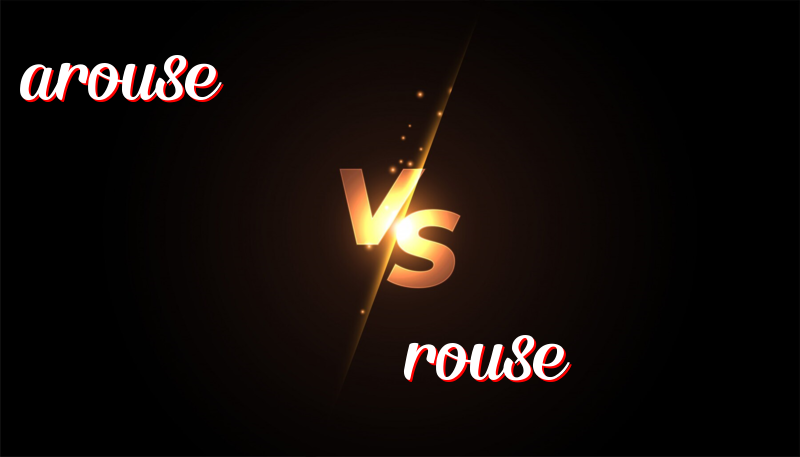英語單詞arouse 與 rouse的區別
介紹「arouse」與「rouse」的區別
在英語學習中,「arouse」和「rouse」這兩個詞常常讓許多學習者感到困惑。雖然它們看似相似,但它們的使用情境和歷史是不同的。本文將詳細介紹這兩個詞的區別,使用方法,以及記住它們的技巧。
詞源和歷史
「Arouse」和「rouse」都有一個共同的詞根「rouse」,意為「引發」或「喚起」。它們都來自中古英語中的「rousen」,意味著「喚醒」。然而,隨著時間的推移,這兩個詞在使用上產生了細微的差別。
Arouse
「Arouse」通常用來指引發情感、興趣或反應。例如,我們可以說「arouse interest」(喚起興趣)或「arouse suspicion」(引起懷疑)。
Rouse
「Rouse」更多用於指喚醒某人或使某人從某種狀態中清醒過來。這個詞的使用更具體,通常涉及到從睡眠、昏厥或冷漠中喚醒。
使用方法
Arouse的使用方法
1. The movie aroused a lot of interest among teenagers.
這部電影在青少年中引起了很大的興趣。
2. The book aroused my curiosity about ancient civilizations.
這本書引起了我對古代文明的好奇心。
3. His actions aroused suspicion among the staff.
他的行為引起了員工的懷疑。
4. The speech aroused strong emotions in the audience.
這個演講激起了觀眾的強烈情感。
5. The news aroused fear and anxiety in the community.
這個消息在社區中引起了恐懼和焦慮。
Rouse的使用方法
1. She tried to rouse him from his deep sleep.
她試圖把他從深睡中喚醒。
2. The loud noise roused the baby.
巨大的噪音把嬰兒吵醒了。
3. He was roused by the early morning alarm.
他被清晨的鬧鐘喚醒了。
4. The coach roused the team with an inspiring speech.
教練用激勵的演講激勵了團隊。
5. The music roused her from her daydream.
音樂把她從白日夢中喚醒。
記憶技巧
記住「arouse」與「rouse」的區別的一個簡單方法是想一想它們各自引發的後果。「Arouse」通常涉及到情感或心理上的反應,而「rouse」則涉及到從某種狀態下的喚醒或激勵。因此,可以記住:「A」在「arouse」中代表「affectionate」或「情感」,而「r」在「rouse」中代表「rise」或「喚醒」。
總結
總結來說,「arouse」和「rouse」在用法上有著明顯的區別。「Arouse」更多用於指引發情感、興趣或反應,而「rouse」則用於指喚醒某人或使某人從某種狀態中清醒過來。記住這兩個詞的差異和使用場景可以幫助你更加準確地使用它們。

Leave a Reply
You must be logged in to post a comment.